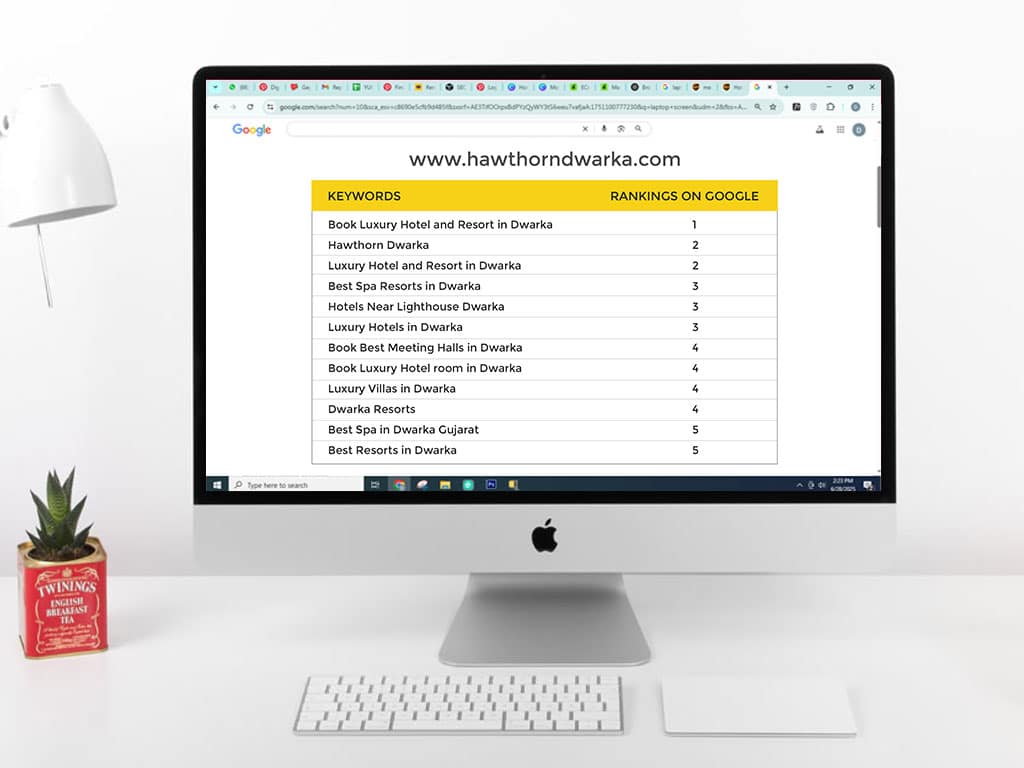Mastering the Digital Landscape
In the ever-evolving realm of digital marketing, Search Engine Marketing (SEM) stands out as a powerful strategy for enhancing online visibility, driving targeted traffic, and achieving business objectives. As businesses compete for attention in the vast expanse of the internet, understanding and leveraging SEM becomes paramount.
Contact Us
Search Engine Marketing Services
Search Engines are the most ideal approach to associate with qualified, ready-to-buy leads. However, researching keywords, optimizing website pages, creating content, and managing paid search campaigns requires some investment, assets, and time. Additionally, if your SEO company in India, then the procedure is inadequate, it tends to be a very long time before you understand that something isn't right and make the vital changes.
Search engine marketing includes a number of activities all revolved around making your site more obvious when somebody utilizes a web crawler. In the event that somebody is searching for your business on the web, it is essential your site shows up noticeably in the web crawlers' outcomes pages, or it will never convey the incentive to your business that the present economy requests.
Search marketing arrives at buyers at precisely the correct time: when they are available to new data. In contrast to most of advanced publicizing, PPC promoting is non-noisy and doesn't interfere with their task. Results are quick with SEM. It is seemingly the quickest method to direct people to a site.
Importance of SEM
Immediate Visibility: SEM provides instant visibility on search engines, allowing businesses to appear at the top of search results for relevant queries.
Targeted Advertising: SEM allows precise targeting based on keywords, demographics, location, and user behavior, ensuring that ads reach the most relevant audience.
Measurable Results: SEM campaigns are highly measurable, enabling businesses to track clicks, impressions, conversions, and other key metrics.
Flexibility and Control: Advertisers have control over budget, bidding strategies, and ad placements, providing flexibility in campaign management.

Complements SEO Efforts: While SEO focuses on organic rankings, SEM complements these efforts by delivering immediate results through paid channels.
SEM Services in India
Advertising with Google AdWords
By using AdWords strategically, we include some keywords in your site which gives the viewers result for your site first whenever they put those keywords in search. We do provide Google AdWords services for better results, in terms of views of your site.
Google Shopping
Google shopping is the best option for you to maximize the sale of your offering as it shows the image of your offering even if the viewers have not searched for it, and that also in the most trendy and catchy way.
Google Display Network
Google display network features your site to another successful and mostly accessed website, videos and applications which are being browsed by most of your target customers. This eventually increases viewers of your advertisement and raise the bar of traffic on your site.
Google Remarketing and Management
Google brings back all those potential customers who have ever visited your site, and stimulate them to buy your offerings. Google Remarketing manages your customers and keeps on reminding them about your site from time to time. It's just like retaining all your past potential customers.
Keyword Research
Market Analysis
Campaign Management
Analysis
Ad Campaign Design
Work We've Delivered
Explore our world of creativity, innovative concepts with eye catching designs to cultivate visual communication of your Brand.
Our designs adapt seamlessly to different screen sizes, providing a consistent and enjoyable user experience.
Contact Us
Key Components of Search Engine Marketing
Search Engine Optimization (SEO)
SEO is the organic component of SEM, focusing on optimizing websites to improve their visibility and ranking in organic (unpaid) search results. Key elements of SEO include:
Keyword Research: Identifying relevant keywords that align with the target audience's search queries.
On-Page Optimization: Optimizing website content, meta tags, and structure to align with search engine algorithms.
Link Building: Acquiring high-quality backlinks to boost a website's authority and credibility.
User Experience (UX): Ensuring a positive user experience by optimizing site speed, mobile responsiveness, and overall usability.
Paid Advertising (PPC)
Paid Advertising, often referred to as Pay-Per-Click (PPC) advertising, involves placing ads on search engines and paying a fee each time a user clicks on the ad.Key elements of PPC include:
Keyword Targeting: Choosing relevant keywords for ad targeting and bidding on those keywords to display ads.
Ad Copy Creation: Crafting compelling ad copy that encourages clicks and aligns with user intent.
Ad Extensions: Enhancing ads with additional information like site links, phone numbers, and location information.
Bid Management: Strategically managing bids to optimize ad placements and maximize return on investment (ROI).
Analytics and Measurement
Data-driven decision-making is fundamental to SEM success. Analytics tools, such as Google Analytics, play a crucial role in tracking and measuring the performance of both SEO and PPC efforts. Key metrics include:
Click-Through Rate (CTR): The percentage of users who click on an ad or link.
Conversion Rate: The percentage of users who complete a desired action, such as making a purchase or filling out a form.
Cost-Per-Click (CPC): The amount paid for each click on an ad.
Return on Investment (ROI): The ratio of profit to the cost of the investment.
Challenges And Opportunities In
Search Engine Marketing
Competition and Rising Costs : As more businesses invest in SEM, competition for ad space intensifies, leading to rising costs per click. This challenges advertisers to optimize campaigns for efficiency and relevance.
Algorithm Changes : Search engines regularly update their algorithms, impacting the way ads are ranked and displayed. Advertisers need to stay informed about changes and adapt their strategies accordingly.
Ad Fatigue :Users may become accustomed to seeing the same ads repeatedly, leading to ad fatigue. To combat this, advertisers must refresh ad creatives and continuously test new approaches.
Mobile-First Trends :The increasing use of mobile devices for internet browsing requires advertisers to prioritize mobile-friendly ads and landing pages.
Privacy Concerns and Regulations :Growing concerns about online privacy have led to increased regulations, affecting how advertisers can track and target users. Advertisers must navigate these changes while respecting user privacy.
Emerging Technologies :Advancements in technology, such as voice search and artificial intelligence, present new opportunities for innovation in SEM. Advertisers should stay abreast of these developments to remain competitive.





